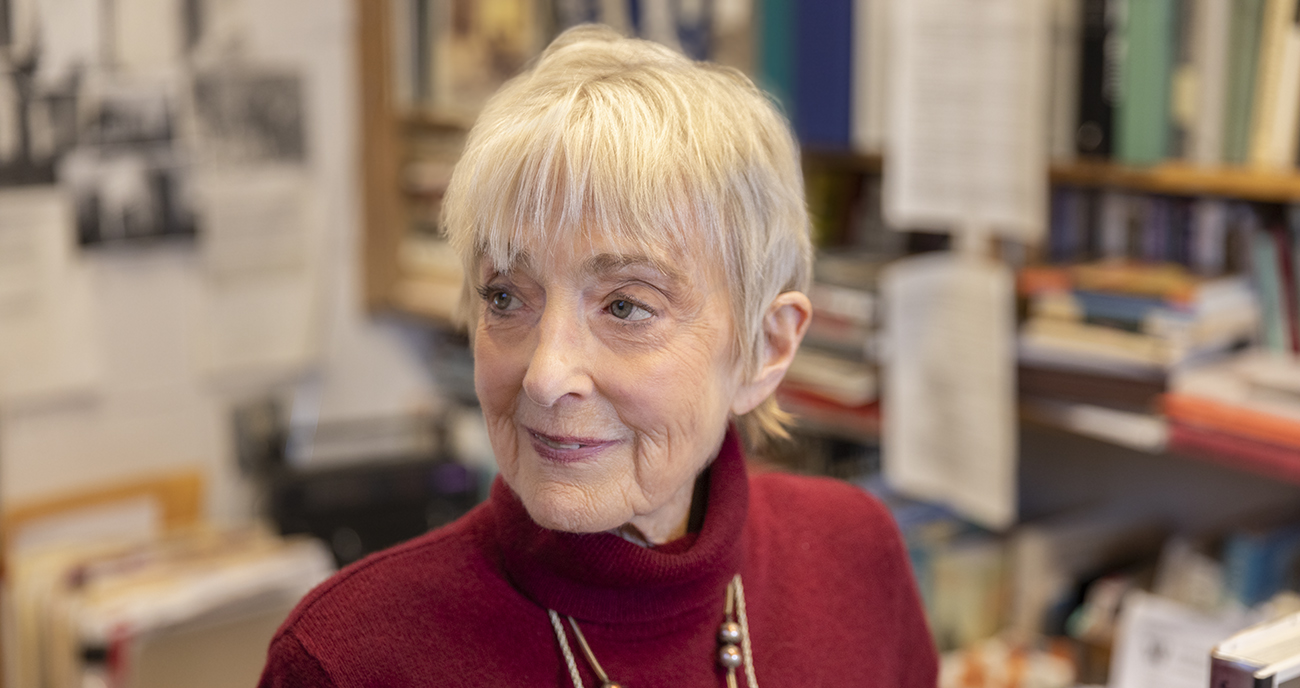
As a graduate student at Berkeley in the 1970s, Meredith Clausen spent a year in Paris on a Fulbright scholarship. Her tight budget meant sharing cramped quarters with two other Fulbright scholars, leaving no space to do their work. She wished the university owned a Paris apartment that she and other students could use.
Now Clausen, UW professor of art history and architecture, is providing such a place for University of Washington scholars. Through a bequest to the University, she is gifting two Paris apartments, acquired over several decades, to ensure that others at the UW can immerse themselves in Paris as she has.

“I’m just a university professor,” says Clausen. “I’m not wealthy. But very early on, I decided this was something I wanted to do.”
Clausen’s interest in Paris began with an Experiment in International Living summer abroad. “It was my first taste of Paris, and boy, I remember it so well,” she says, still recalling the pleasure of her first Parisian café and the aroma of baguettes straight from the oven. A decade later she returned through a Fulbright dissertation grant to research La Samaritaine, a Parisian department store completed in 1910.
“What drew me to La Samaritaine was that it was one of the first exposed steel-framed buildings in Paris, a radically new structural system inspired in part by the architect Louis Sullivan’s work in Chicago,” says Clausen. “It bore the impact of the industrial revolution in its materials and industrial processes, but was combined and softened by detailing that was fully art nouveau and all hand done.”
After joining the UW faculty in 1979, Clausen mostly studied contemporary American architecture. But she always imagined returning to Parisian architecture—and acquiring an apartment that would allow immersion in that research.
I’m not wealthy. But very early on, I decided this was something I wanted to do.
In the early 1990s, Clausen bought her first Paris apartment. It was a humble place, and the location in a working class neighborhood on the periphery of the city wasn’t ideal, but it was affordable. She rented it out immediately, and watched its value skyrocket as the area gentrified. In 2005 she returned to Paris on a fellowship at the Institute of Scholars, Reid Hall, Columbia University, but didn’t stay in her own apartment because the institute provided more desirable housing in the heart of the city. Clausen quickly saw the value of living close to the city’s museums, national archives, and other scholarly resources, and decided to purchase a more centrally located Paris apartment using income from her first apartment.
“I found an apartment in the fifth arrondissement that was old and falling apart, but perfectly located,” says Clausen, “so I got it for a good price and later remodeled it with scholars in mind.”

Clausen has since made good use of the second apartment. She has spent summers in Paris while researching Le Corbusier, Christian de Portzamparc, and other architects, and has revisited the topic of her dissertation, La Samaritaine, as the author of a chapter for a 2014 book about the historic department store. (Interest in La Samaritaine has grown thanks to owner Louis Vuitton’s plans to convert the building into mostly high-end condominiums.)
True to her original vision, Clausen also has made her Paris apartment available to other academics, including UW doctoral students pursuing research in Paris. “The main reason for getting the apartment was to make it available for other people,” Clausen says. “Half of my salary from the UW went into those apartments, so it’s important to me.”
Important enough that Clausen created a bequest to ensure that UW scholars will continue to benefit long after she’s gone.
“I decided to make this gift to the University because I love my work,” says Clausen. “I love teaching, the research, everything about it. I’m not a millionaire, but through this gift I’m able to do something for the University and make things easier for others who, like me, want to do research in Paris. It’s what I’ve always wanted to do.”
More Stories

A Love of Classics and Ballroom
Michael Seguin studied Classics at the UW and now owns Baltimore's Mobtown Ballroom. The two interests, he says, are more connected than they might seem.

Bringing Music to Life Through Audio Engineering
UW School of Music alum Andrea Roberts, an audio engineer, has worked with recording artists in a wide range of genres — including Beyoncé.

A Sports Obsession Inspires a Career
Thuc Nhi Nguyen got her start the UW Daily. Now she's a sports reporter for Los Angeles Times, writing about the Lakers and the Olympics.